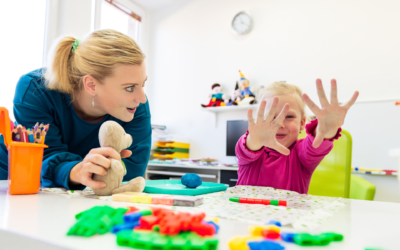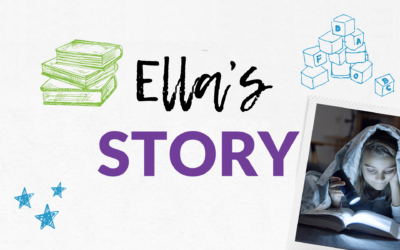If you are worried that someone might see you have visited this page, find out how you can stay safe online and cover your tracks before you carry on.
If you are in immediate danger, please call 999
Calling from a mobile
- Call 999.
- You can be silent.
- Listen to the questions from the operator.
- Respond by coughing or tapping the handset if possible.
- When prompted press 55 to let the operator know that it is a genuine emergency call and the operator will put your call through to a police call handler. Pressing 55 does not enable police to track your location.
- The police call handler will attempt to communicate with you by asking simple yes or no questions. Listen carefully to the questions and instructions from the call handler so they can assess your call and arrange help if needed.
Calling from a landline
- Call 999.
- You can be silent
- The operator will hear background noises but cannot decide what emergency service is required.
- Because it is less likely that 999 calls are made by accident from a landline, the call will be connected to a police call handler.
- The police call handler will attempt to communicate with you by asking simple yes or no questions. Listen carefully and respond accordingly.
When 999 calls are made from landlines, information about where you’re calling from should be automatically available to the call handlers to help provide a response.
How can we help?
I need to talk to someone on the phone
Our free helpline is available on 08000 194 400 24 hours a day or you can send us a message via WhatsApp on 07719 558183 (Mon-Fri 9.00am – 5.00pm).
I would like to chat to someone by text
We understand that telephone conversations are not for everyone. Our online chat services is available Mon-Fri 9.00am – 5.00pm. Click here to start a chat now.
I want to learn more about your services for children
If you are just curious about how we support children and young people, you are on the right page. Please read on to find out more below.
I want to refer myself or someone else for support or advice
You can make a referral by calling our helpline on 08000 194 400 24 hours a day or via email at referralpoint@havenrefuge.org.uk.
I would like some learning resources
We are currently developing some fun and engaging learning resources for you to download.
Please email media@havenrefuge.org.uk to find out more.
Life in Refuge
When a child comes into one of our refuges they are greeted by a member of staff and given a welcome pack. The pack contains a gift, some information on the sessions we run in refuge and a meet-the-team profile to help children become familiar with the staff who will support them. We show children the play/sensory rooms and explain that we can hold one-to-one sessions and groups sessions.
Most importantly, we let the children know someone is always available, whenever they need to talk. We provide counselling sessions and play therapy sessions among other things with a dedicated team, trained to support children and young people. We understand that for a child, moving into a new environment, leaving behind all their familiar comforts can be especially difficult. We try our best to make life in refuge as “homely” as possible.
Mums at The Haven
Mums & Under 5s
We know that children’s needs change as they grow and so tailor our support to each child, taking their age into account. We support the development of children under five through motor skill development and sensory activities, as well as supporting their sounds and speech development.
Every week we offer a one-hour minimum creche service to give mums some time to access support in their own right, whether one-to-one with their key worker, counselling sessions, or one of our support programmes.
Supporting Children & Young People after Trauma
1-2-1 sessions
All of the options discussed below can be offered as either 1-2-1 sessions or group sessions. However, we offer a 12 week 1-2-1 session that is meant to meet specific needs. These sessions can cover anything from support with anger-management or confidence building, to developing healthy friendships.
Group sessions
Group sessions are a great way for the children who have to come into refuge to build new friendships and learn how to work as a team. We also use group sessions to do fun arts and craft activities.
Play therapy
Children naturally express themselves through play. We use play therapy to help them express their feelings more easily through toys instead of words. This way we are able to support younger children or children with additional needs.
Sand and water play
This form of play encourages groups of children to work together, communicate with each other and share. It is one of the most effective methods that we use to educate early years children and develop their understanding of learning. We use this to encourage teamwork and to help them build new friendships and relationships when families come into refuge.
Emotional resilience
The word ‘resilience’ comes from the Latin ‘resilio’ meaning to bounce back. The children who come to our service have been through a lot of change and this could affect their development and emotional wellbeing. We are keen to build children’s resilience and coping strategies from a young age for them to be able to deal with stress or adversity later in life.
Self-esteem and confidence
We work with children and young people who may have lost some of their self-esteem and confidence due to the situations they have been in as well as other stressful factors in life such as school transition periods. We are committed to helping them understand that they can value themselves and feel worthy, regardless of any imperfections or what others may think about them. We encourage them to master the things they are good at and focus on achieving their goals. We do a lot of this through group work to show the children and young people they are not alone and that it is okay for them to express their feelings.
Wishes and feelings
Enables workers to explain the meaning of various emotions or feelings and to have conversation about the different circumstances in which they experience the discussed emotions or feelings. We tend to use wishes and feelings with children under 8 to explore different forms of emotions as well as wants and needs. This is to ensure that children can recognise what they are feeling and help them understand how they can deal with the emotions that they are feeling.
Art therapy
Art therapy is a technique rooted in the idea that creative expression can foster healing and mental well-being. Art, either creating it or viewing others’ art, is used to help people explore emotions, develop self-awareness, cope with stress, boost self-esteem, and work on social skills.
Lego therapy
Lego therapy is a social development program primarily for autistic children and other children with social communication difficulties. It uses children’s love of Lego play, as well as their strengths and interests, to develop communication and social skills.
Music therapy
Music therapy is the use of music to address the physical, emotional, cognitive, and social needs of a group or individual. It employs a variety of activities, such as listening to melodies, playing an instrument, drumming, writing songs, and guided imagery.
Our work in schools
We work in local schools delivering a range of sessions on topics relating back to healthy relationships and violence against women and girls. By exploring these topics with young people we can explore, recognise and reflect on behaviours and ideas that are accepted as normal but can create and exacerbate abuse and violence. By exploring these ideas with young people at an early age we want to encourage critical thought at a young age to reduce the incidents of abuse and violence in future.
Early intervention support
Expert Voices: A Child Abuse Awareness Month Exclusive
In an exclusive interview, Louise and Ram share the vital importance of societal change in response to child domestic abuse, poignant experiences and innovative approaches. Join us as we dive into their journeys as Children Young People (CYP) and Families Support Workers at The Haven, uncovering the passion and resilience that drive their mission to create a safer, more supportive environment for children and young people. Read for more.
Ella’s Story
Ella is a brave young girl who, along with her family, found solace and support at The Haven during a challenging time at home. Initially hesitant and fearful, Ella soon discovered a safe and nurturing environment filled with dedicated individuals committed to helping her thrive.
Standing Against Stalking – Supporting Young People
This year National Stalking Awareness Week (NSAW) focuses on young people and invites us to take a stand to support them. Stalking and harassment are serious issues that can have severe and long-lasting effects on young people aged 16-24 in the UK. According to a study conducted by The Suzy Lamplugh Trust, 1 in 5 young people in the UK have experienced stalking or harassment, with 1 in 10 being stalked online. Read to find out more.



